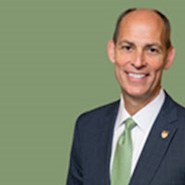
By Mona Savino & Thomas Smith, III
Situation
An engineer was hired by a corporation to assist in the development of a parcel of land. While retained, the engineer was told by the corporation that it was interested in purchasing an adjacent piece of property in order to expand its current project. The corporation told the engineer this so that the plans and specifications being prepared for the current project could be designed to accommodate the expansion. It also told him when the property would be put up for public auction and what it intended to bid for the property.
The property was later offered for sale by the county and the engineer submitted a bid that was $5 greater than the amount the client intended to bid. The engineer was the high bidder and obtained the property. The corporation filed a complaint with the state licensing board against the engineer. The board suspended the engineer's license for 60 days. At the request of the ASCE section in that state, the Committee on Professional Conduct (CPC) initiated an investigation into the matter.
Question
Is it a violation of the ASCE Code of Ethics for an engineer to use information obtained from a client in a way that adversely affects the interests of the client?
Discussion
Yes. At the time of this complaint, the Code of Ethics read as follows:
It shall be considered unprofessional and inconsistent with honorable and dignified conduct and contrary to the public interest for any member of the American Society of Civil Engineers:
- 1. To act for his client or for his employer otherwise than as a faithful agent or trustee. . . .
- 9. To act in any manner derogatory to the honor, integrity or dignity of the engineering profession.
After investigating the matter, the CPC determined that the engineer might have violated canons 1 and 9. It noted not only that the engineer purchased the property at a price higher than what he knew the client planned to bid but also that he then offered to sell the property to the client at almost double his purchase price. What is more, the client testified before the licensing board that because the engineer purchased the property it was now unable to develop and complete its planned addition to its project.
The licensing board found that the engineer failed to faithfully discharge his duties to and perform services for his client and was guilty of misconduct in the practice of professional engineering. The board went on to state that the engineer used information obtained from the client for his personal benefit and to the detriment of his client, which showed a lack of trustworthiness to transact the business required by the profession.
After a hearing, ASCE's Board of Direction suspended the engineer's membership for one year.
© ASCE, ASCE News, February, 2006



